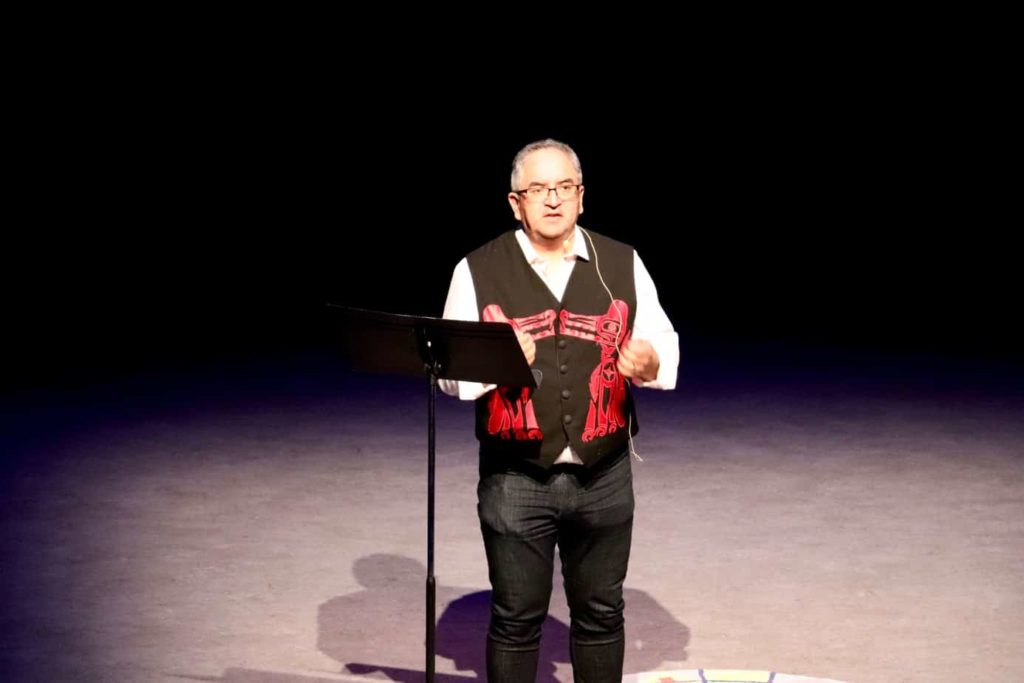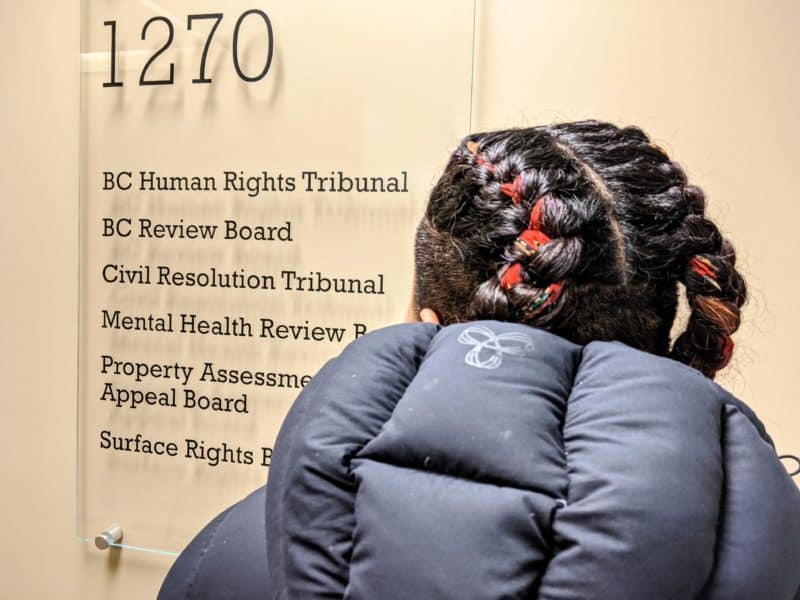
A Gitxsan hereditary chief trying to stop his own people from logging on his house’s territory in northern B.C. brings to mind the little talked-about issue of internal First Nations reconciliation.
The headline in the Indigenous news source Windspeaker — “Hereditary chief willing to go to jail in logging dispute with ‘own people’” — is what struck me first. This is a dispute between houses in two Gitxsan First Nations; this isn’t a dispute between a First Nation and a white logging company, as is often the case.
The issue goes deeper than just chiefs from two neighbouring First Nations who disagree. For starters, there is the issue of consultation. In his news release posted to Indian Country Today, the hereditary chief who erected the blockade says the company that holds the license to log should have consulted with him and his house first. “If it was a white company that held the logging licence, then by law the government is obligated to consult with my house — the Wilp’s Wii Gyet — because their plan impacts our territory,” Dan Good wrote in his statement.
Also at issue is the achilles heel of First Nations oral history. The chiefs of both houses say their claims are supported by their oral histories. But if those oral histories contradict each other, how do you definitively prove which side is right?
This sort of internal reckoning is why I always say that the last leg of the reconciliation journey is going to be the most difficult. That last leg will not be between Indigenous and non-Indigenous people. Instead, it will be the reconciliation between First Nations.
The dispute between neighbouring northern First Nations over logging on a territory they both claim isn’t an isolated issue. The BC Treaty Commission noted the “thorny issue” of overlapping claims in its 2014 annual report. “We have consistently identified overlapping claims as one of the biggest challenges that a First Nation, reaching Final Agreement, must overcome,” commissioner Sophie Pierre said. “This is also an issue that impacts both Canada and British Columbia.”
The root of tribal disagreements is often explained away as being caused by the fallout from colonialism. Before settlers arrived, though, there had been wars, slaughter and slavery, and the embers of those conflicts were still aglow when colonization started. The arrival of settlers only artificially halted those conflicts, especially after disease swept through and decimated First Nations people. But as I’ve often found, those old tribal rivalries didn’t die with them.
How important is inter-First Nations reconciliation to you? Should it take place before reconciliation with non-Indigenous people? And how do you start the conversation about this between First Nations? Let me know what you think via Facebook, Twitter or email. Finally, if you enjoyed reading this newsletter, please ask your friends to subscribe.
I know you appreciate good journalism about reconciliation, but I hope you appreciate that it costs money to do it. We need your help to continue producing important work about reconciliation. This is especially important when we try to go into communities to witness first-hand how bureaucratic decisions made in far-away Ottawa boardrooms impact ordinary First Nations people. If you agree with our approach, then will you take the next step in supporting it by becoming a paying member of our community at The Discourse?
ICYMI
I was a guest speaker at RavenSPEAK’s Amplified event in Vancouver on June 14. I gave an 11-minute talk about my experience as a journalist who is Indigenous, and I shared some of my thoughts about reconciliation. RavenSPEAK is a new space that wants to showcase Indigenous speakers and create an Indigenous speakers hub. It was the first time I spoke publicly to a crowd this big. I don’t think it will be my last.[end]



